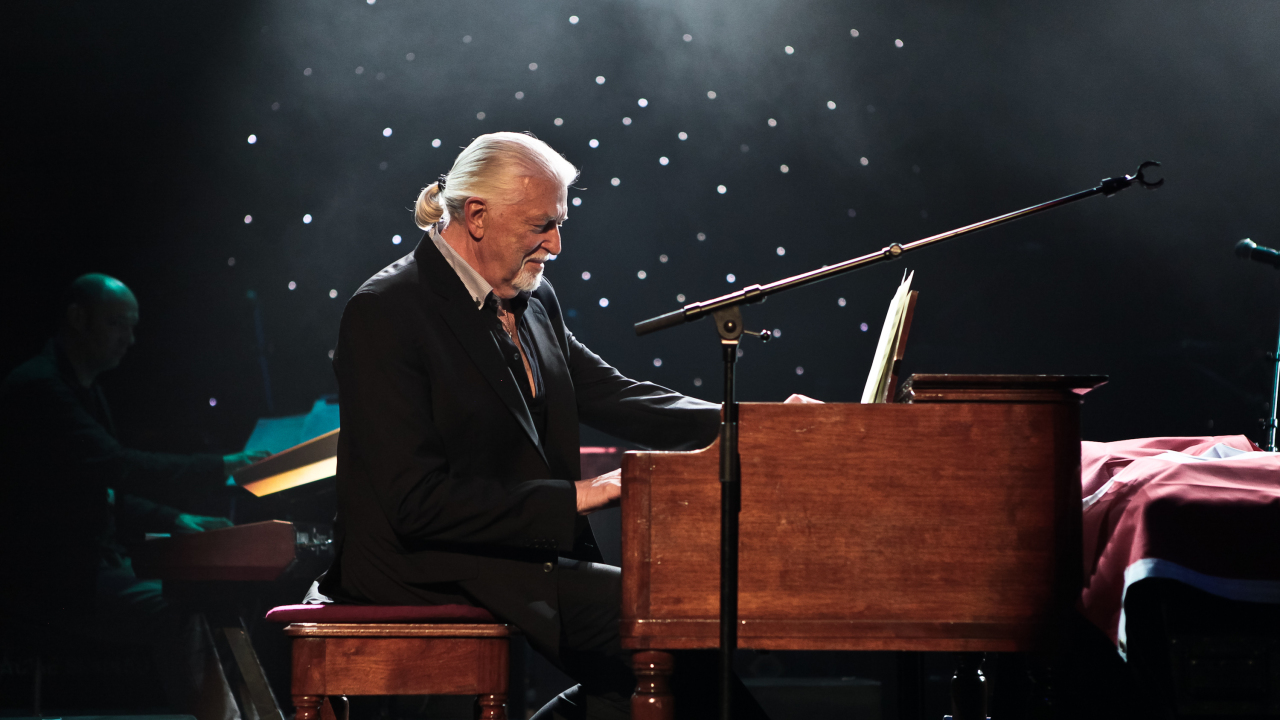“Helloo old son,” he said – finally – when he picked up the phone on Monday night. “How the devil are you?”
It had taken what seemed like an age to get to this point. Dates had been arranged and then cancelled. Phone calls made, calls gone unanswered. It was excruciating. Yet this was Jon Lord. And he was suffering from cancer. So what do you do? I tell you what you do. You swallow your indignation and you hang on.
“Sorry about all that,” he said, when it eventually came together. “When you rang the other afternoon, I was asleep.” A tough day after another tough day. There’d been a few of those, he said.
He apologised again and hoped I understood. I did. I felt bad for nearly waking him up. It would be fanciful to pretend we were buddies, but I’d interviewed him a few times over the years and I liked him. I liked interviewing him. He was smart. He was funny. He was honest. And he could tell a story.
We had a long old chat which lead to this long old piece before you. I sent it over a week later – Monday morning, July 16. Four hours later, he was dead.
There have all been all sorts of discussions about what we should do with this piece. Some of it, you could argue, looks slightly incongruous now.
But when he said he would beat it, I believed him.
“If you take one thing from this piece,” he said, “be positive.” That’s how he was. We could have taken that out but, frankly, that seemed worse than leaving it in. It would have been a betrayal of who he was and how he fought the disease.
So here it is. All of it.
“God bless you,” he said when the interview ended. “I’m sure we will speak again.” I was sure we would, too.
God bless you, Jon Lord. We will all miss you x.
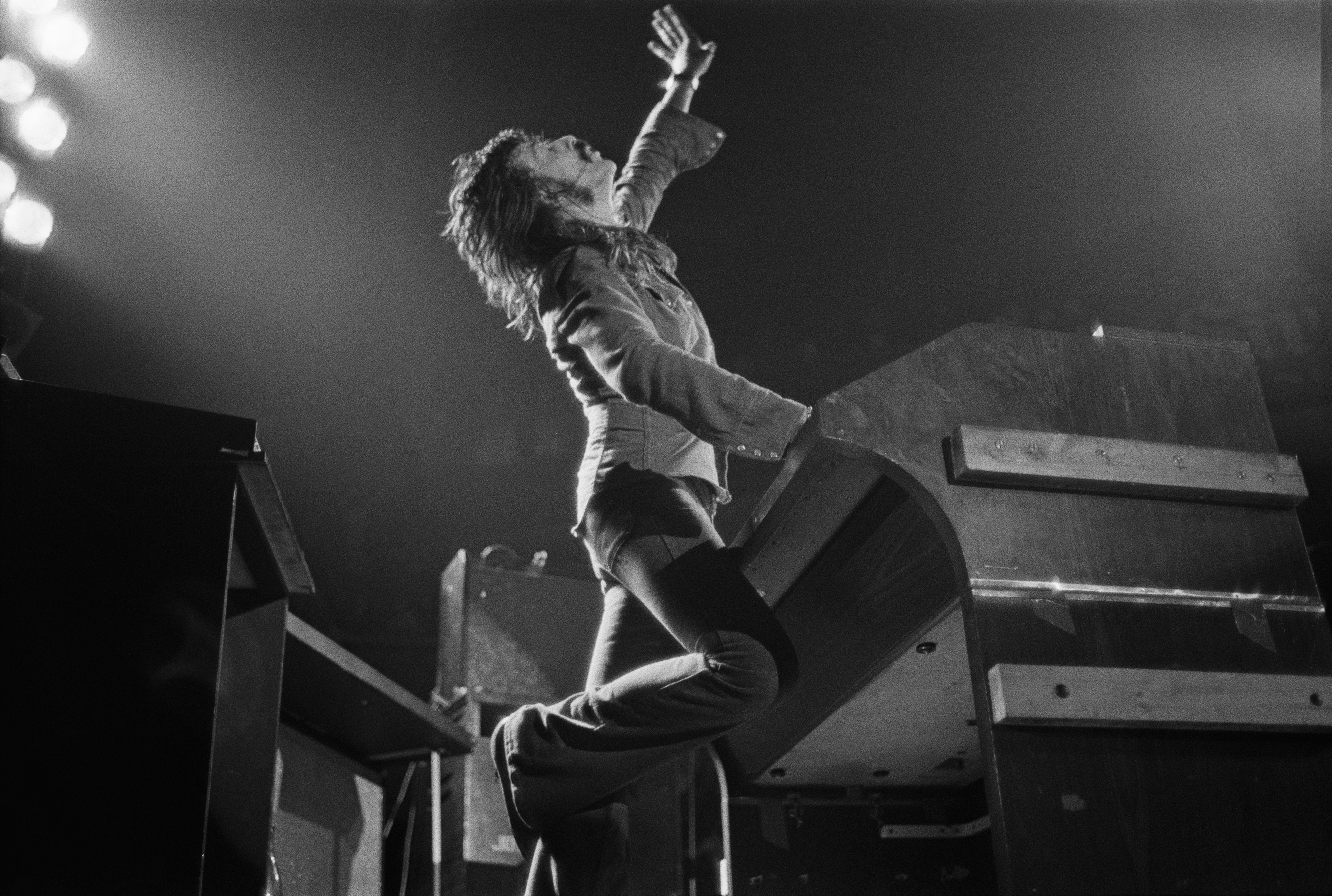
A summer’s day, 2011, and Jon Lord is on stage at the De Montfort Hall in his home town of Leicester. He is not playing. He is not perched, stage left, hammering away behind a tilting column of Hammond organs. He is receiving an Honorary Doctorate in Music from the University of Leicester. If there is a prouder man in the East Midlands on this day, you’d be hard pressed to find him.
He stands – in his royal red gown, holding his mortar board – addressing the audience, recounting what it means, what this place means and how utterly humbled he is by it. Several times, he looks close to tears. He used to watch his dad, Reg, play saxophone here in this very hall. He saw Buddy Holly here when he was 17. He played here, in this lovely Edwardian-era venue, with Deep Purple and Whitesnake, more times than he cares to remember.
His voice quivers slightly when he pays tribute to his parents who would be “dancing in the street if they could see this now. I only hope they are dancing somewhere far more pleasant. Thank you. God bless. And good luck.” He leaves the stage to the familiar sound of applause.
He’s just turned 70, Jon Lord, but he looks well. He’s lost a bit of weight, he says, probably because he’s been so relentlessly busy: playing, touring, even though he’s supposed to be touring less and slowing down, and he’s just re-recorded his Concerto For Group And Orchestra, his baby, to be released some time in 2012. He wondered what life would be like when he left Purple in 2002. Ten years on, he never dared dream it would be this good.
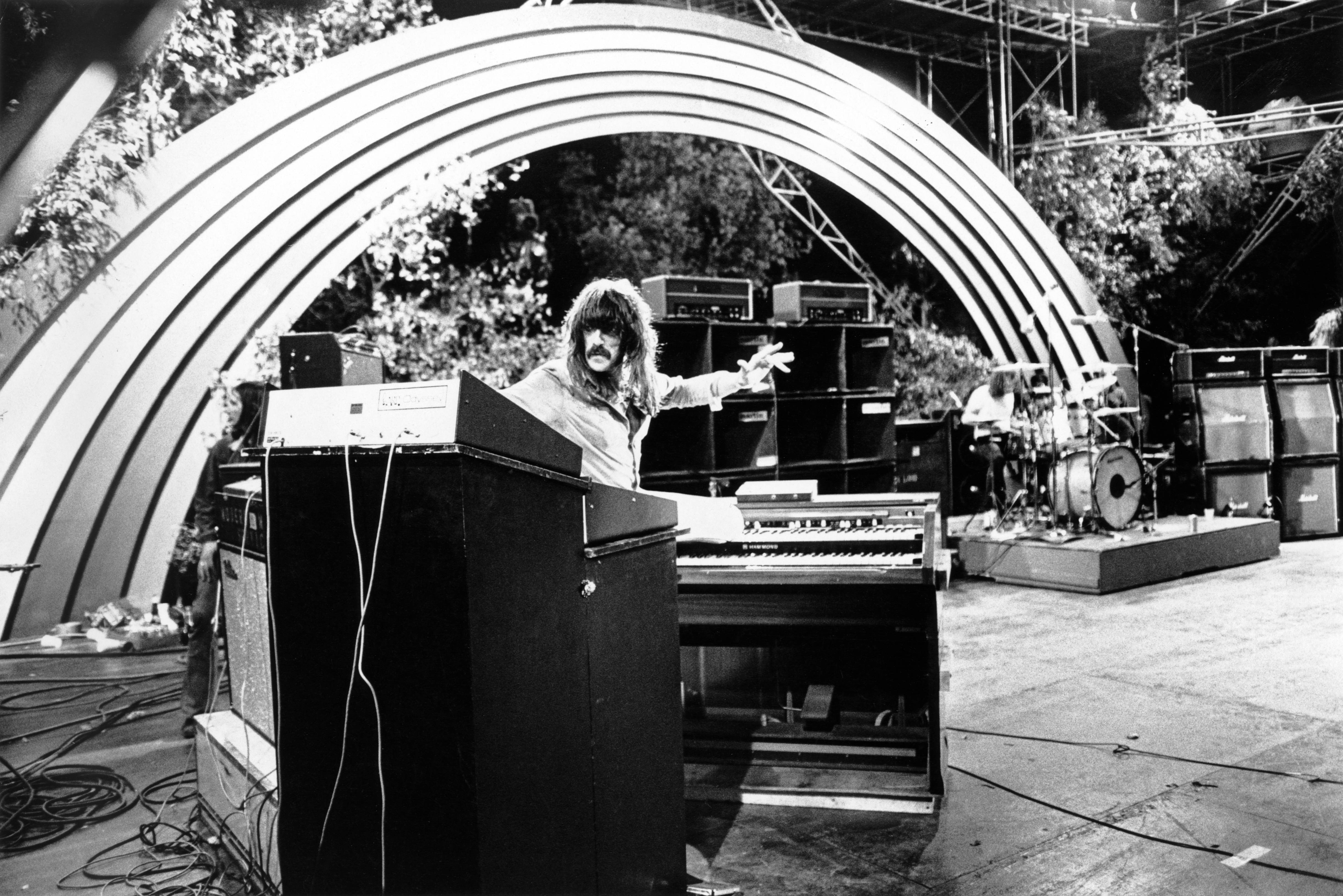
We sit in a cafe in Leicester on the afternoon of his homecoming, drinking coffee and chatting, about anything and everything: home, away, rock, roll, playing, retiring. He is, as he always is, intelligent but easy company.
What he doesn’t mention is the dull ache he’s feeling in his stomach. He noticed it a few weeks ago. It’s nothing, really. He knows that. Inconvenient, rather than worrying. It’s hard to ignore it, though, because it’s there all the time.
He knows it’s nothing because his doctor told him it was nothing. He saw his GP a few weeks earlier. He had an ultrasound scan and it was clear. If there was something wrong, anything, then surely the scan would have picked it up. Wouldn’t it? Of course it would. No need to worry.
In the days after he receives his honorary degree, the pains continue. They’re not any worse. They are, though, more insistent. “I wouldn’t say it was a pain,” says Lord today, looking back, “it was a kind of low level discomfort, that’s all. But just enough for you to notice it.”
Shortly after the graduation ceremony, he sees his doctor again. Still, they find nothing. The doc is concerned enough, however, to refer him higher up the medical chain. Another specialist. More tests.
And still nothing. That day, by chance, there’s a cancellation in the CAT scan clinic. “We may as well have a quick look,” says the specialist, unaware he is about to save the life of rock’s most famous keyboard player. They did the scan. It took 20 minutes. Jon Lord sat in a waiting room, flicking through a magazine waiting for the results. He wasn’t nervous. He was expecting good news. “I was utterly unprepared for what happened next,” he says.
“The doctor appeared and said: ‘You’d better come with me’. He didn’t look happy, which was a surprise. A little bit worrying. I followed him to his office and he said: ‘Please, sit down… I’m afraid it’s not good news’.”
And that’s when the specialist told Jon Lord he had cancer.
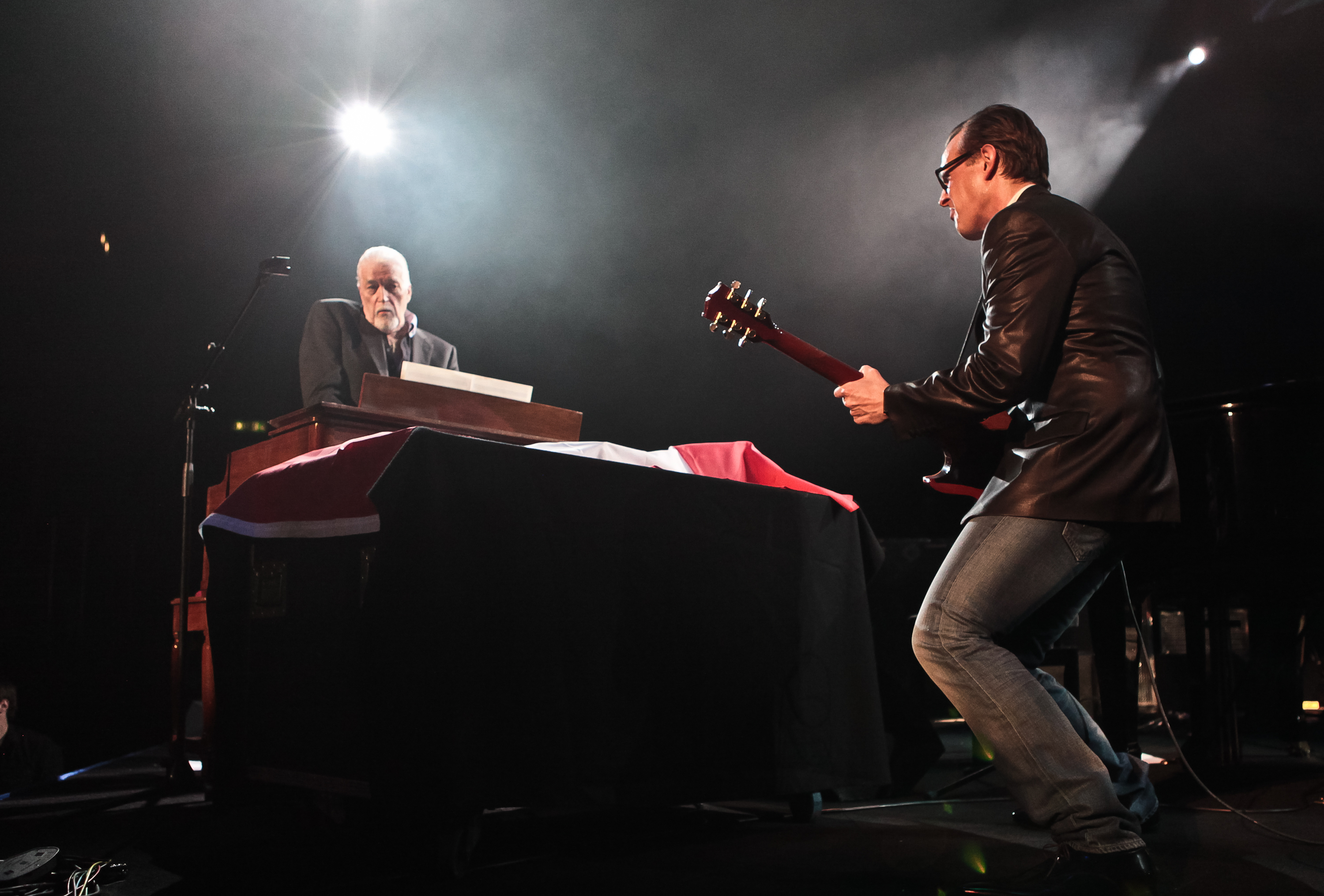
Jon Douglas Lord became a different man that day. Everything changed, he says. “I realised, as I walked out of the hospital and down the street to my car that something mighty had happened. That my life, as I knew it, would never be the same again. It was a heck of a blow.”
He’d reached the age of 70 without any significant health problems or scares. He’d been in rock and roll for nearly 50 years – not always, it should be said, living an archetypal rock and roll lifestyle – and the worst thing that had happened was a bout of appendicitis in 1975. “That was it. Nothing any worse than that.
“So I wasn’t expecting it at all. There wasn’t even a fleeting thought it might be cancer, that it might be something that serious. I’d felt… blessed, I suppose. The life I had lived, this working class kid from Leicester, a wonderful career, Purple, Whitesnake, Purple again, family, friends.
“And then all this kind of slightly off-centre stuff I’d been doing since I left Purple, which I know, from a promotional point of view, is awkward. It’s not an easy sell and yet it had been selling. We were filling seats. Selling out concert halls. I was a lucky man.”
He sat in his car, started the engine and put the vehicle in first gear. He remembers thinking that he shouldn’t be driving, as he pulled away, first into second, third to fourth, reeling from the shock, struggling with his emotions.
And yet it felt good, driving, something he didn’t have to think about as the real world flashed by outside, the grey tarmac, the green fields, this strange new world he would now face as a man with cancer.
“I had a surprising equanimity, really, as I drove back,” he says. “In fact, I remember laughing to myself at one point.”
Laughing?
“Yes, laughing. I remember saying to myself: ‘Well, there’s a turn up for the books, lad’. Lad. My father used to call me ‘lad’. I catch myself, sometimes, in times of emotion saying things that sound just like my father. And I started to laugh. An incredulous laugh, really, but a laugh nonetheless. It was a strange thing.”
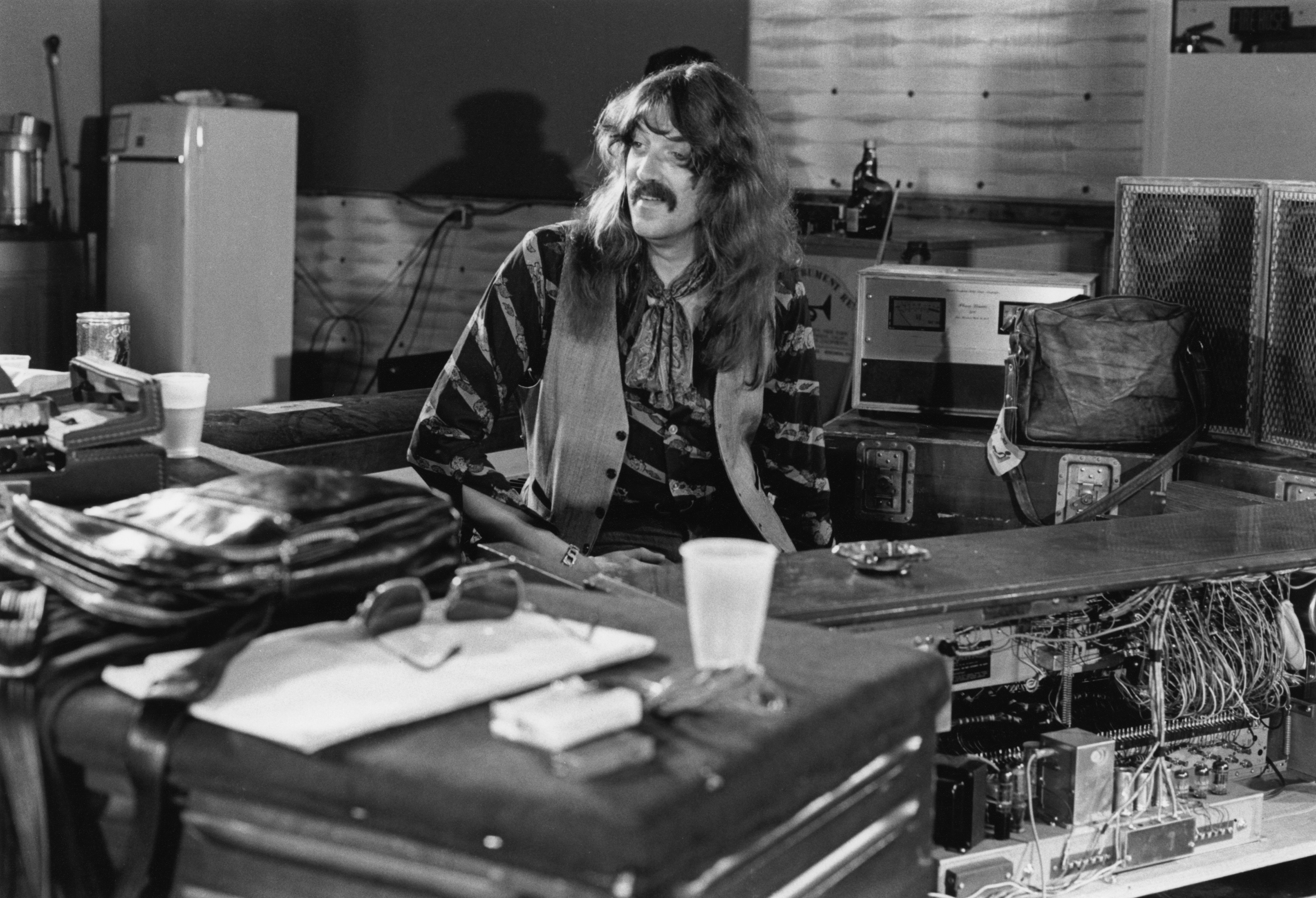
The laughter was short-lived. He arrived home, walked through the door, embraced his wife, Vicky, and cried. He wept, on and off, all night. The shock, the sorrow, the self-pity, the ‘what-ifs’, all those things he still wanted to do, left undone. He needed medication to sleep that night, he says. But the maudlin and sorrow lasted one day. He told his daughters, he told his friends – that wasn’t easy, he says – and his mind was set. He would beat it.
“All the advice I received, from friends who were doctors or in the medical profession, was essentially: be positive. You have to remain positive. Cancer thrives on pessimism. It loves despair.”
So that’s what he did, from that day on. He was a fairy cheery, good-natured, optimistic bloke anyway. A few minor tweeks to his character would help him tackle this disease head on. It made perfect sense, he says. And yet this wasn’t any old run-of-the-mill cancer. This was pancreatic cancer. Cancer of the pancreas has the highest fatality rates of all cancers. Survival rates over five years are poor.
A statement was released via Jon’s website later that summer. Jon had cancer, the short statement said. He would continue to write music but he would not be touring. See you soon. God bless.
- Ian Gillan: "Rodney Marsh Is To Blame For Deep Purple Re-forming"
- Whitesnake: "The Coverdale I recall was a vain, preposterous oaf"
- Various Artists: Celebrating Jon Lord
- Various Artists: Ian Paice’s Sunflower Jam: Live At Royal Albert Hall
It was deliberately vague, he says. “I’d got my head around it. I knew what it was. I knew I was going to be positive. I also knew from the advice I’d been given that pancreatic cancer is not the death sentence it once was, that some people still assumed it was. I didn’t want all these… moaning minnies and weeping willies. I needed positivity, people’s support.”
By and large, that’s what he got. Letters and emails and cards flooded in from around the world. The response, the kindness of perfect strangers, was overwhelming, he says. “I think I read every one, every message.” They made him cry when he was determined to cry no more.
“The stories people sent me – ‘My brother had this five years ago, Jon, and you should see him today. He’s still here, he’s still fighting, we’re all thinking of you, you can do it…’ It was tremendous. I remain and always will remain utterly astounded by and grateful for that level of support.
“It nourished my attitude. It is the biggest weapon you have in your armoury. The rest – the treatment, the advice – comes from outside. The attitude, the positivity, comes from within. I used to stand in front of my bathroom mirror every morning and I’d say: ‘I am going to beat this. I am going to beat this’.”
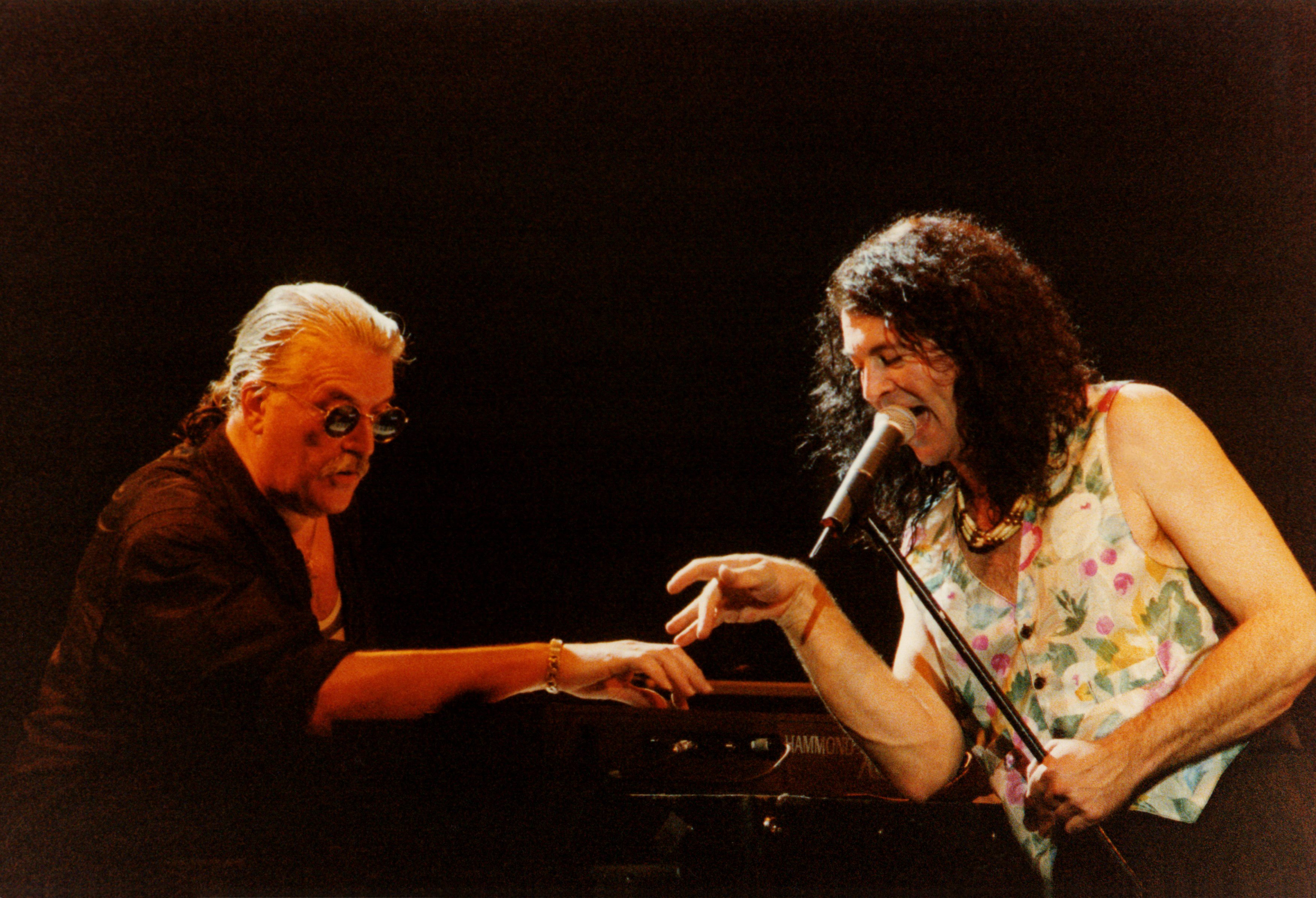
If you take one thing from this article, let it be that, he says. Be positive. It costs nothing. It means everything. Three weeks after diagnosis he started treatment; 12 weeks of chemotherapy at a specialist oncology centre in London. The chemo was as bad as people say it is.
“I came through it reasonably well. It didn’t make me sick, they controlled that, and I only lost a small amount of hair.” The loss of appetite and the obliteration of his digestive system were the worst parts. The hair went from the back of his head, not the front, persuading himo t part with something he’d possessed for the best part of 25 years: his ponytail.
“I’d had it, on and off, since I left Whitesnake in 84, and pretty much full- time since around 1990.”
It was less of a big deal than he expected. “It was actually quite liberating. I look a bit more like Donald Sutherland without it. So, no, I didn’t mind.”
Treatment curtailed the re-working of Purple’s Concerto For Group And Orchestra, the 1969 opus which had been re-recorded with the Liverpool Philharmonic in June 2011, featuring Lord and assorted friends. (More on this, later.)
The chemo ended, but the treatment continued. This time – Israel, four separate visits, two to three weeks at time. It’s a little known fact that Israel leads the world in its treatment of cancer.
He’d been to Israel only once before, during the ill-fated Joe Lynn Turner era of Purple for two shows; in Tel Aviv, and on the shores of Lake Galilee.
They injected him with the bird flu virus. In Britain, thanks to an almost annual media-fuelled panic, the words ‘bird’, ‘flu’ and ‘virus’ are enough to send even sane people into a sweaty panic. “The bird flu virus is only harmful to humans when it mutates,” explains Lord. “The virus itself is benign – and it also eats cancer cells.”
He doesn’t know why or how this happens, only that it does.
“They injected a small dose of this virus into me, which gave me a mild dose of the flu every time I had it, but, medically, it was so much better than chemotherapy.
“Then they gave me a tailor-made cancer vaccine, based specifically on my cancer, which they then deliberately mutated so it was slightly mis-matched to fight my cancer cells.”
His body, his beleaguered pancreas, became the proving ground for pioneering medical treatment. Rather than chemotherapy – a nuclear bomb-like approach, which obliterates every cell, good and bad, in the battle against cancer – this more targeted approach, with fewer side effects, seems to be a more effective and less unpleasant way of combating the disease.
The results were good. “When you get to my age, the cancer is very slow moving. It’s containable. My oncologist has had patients who were diagnosed with pancreatic cancer 15 or 16 years ago. They still have treatment and they still have cancer – but, crucially, they’re still here. They found my cancer early and the size of the tumour has reduced.”
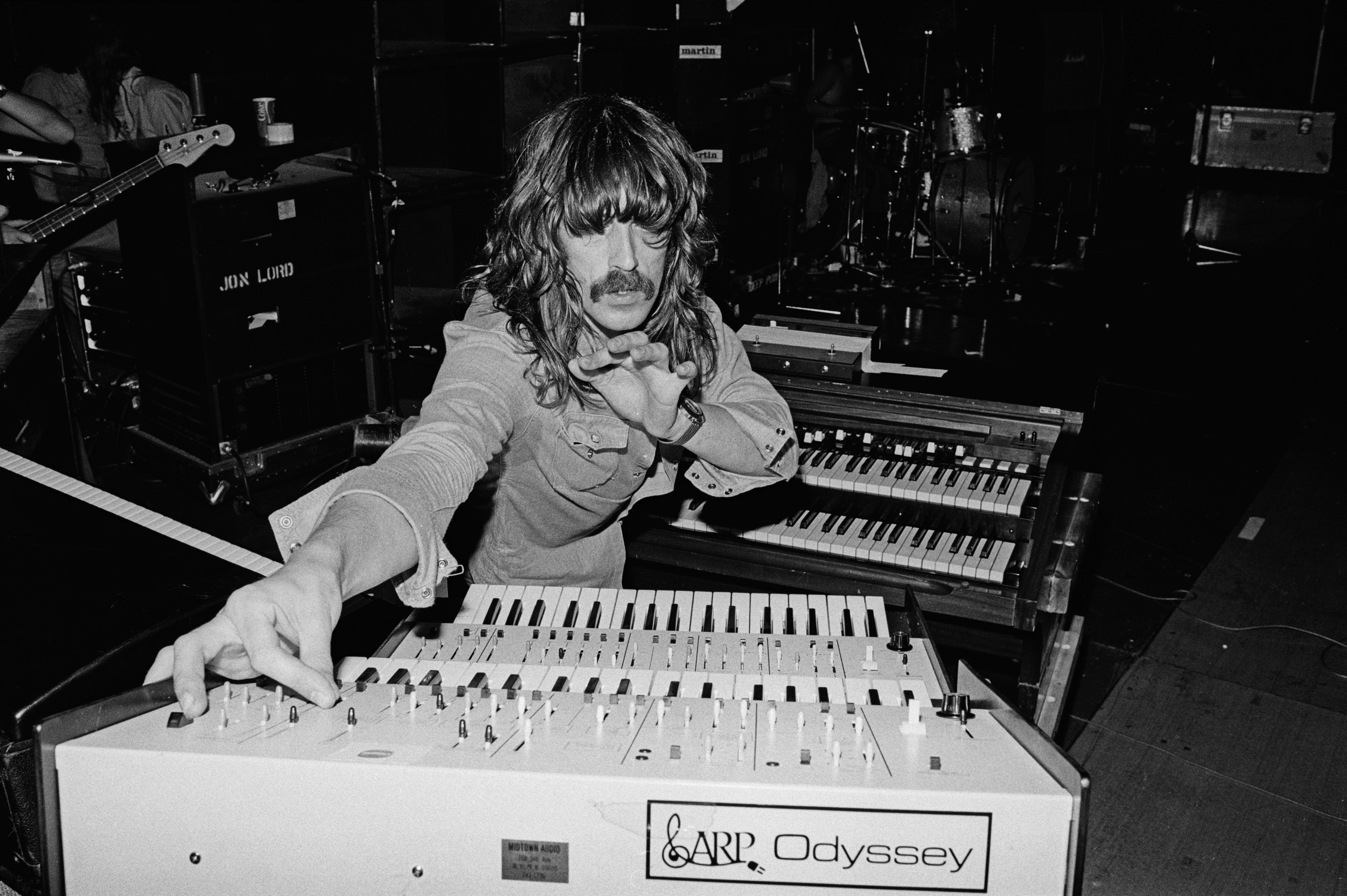
The plan is to keep it that way. They might not be able to cure him – it would be nice if they did – but that’s an after-thought, almost. The aim is containment. So far, it’s working.
“I’d like to get to my father’s age. He was in his late 80s and he’d led a good life. I don’t want to limp to that milestone. I don’t want to drag myself over that line. I want to be active and well.”
Is he well today? “I am, yes. I have lost weight – I have lost too much weight, to be honest. I can get into trousers I last wore in Deep Purple Mk I.”
He is down to below 11 stone and a size 31” waist. He is 6ft 1ins tall. “I’ve not been that size, I don’t think, since 1967. I am like a beanpole.”
Eating is a challenge. Red meat is banned. Green-leafed vegetables are the dish of the day, every day. It’s a small price to pay, he says. “I can still eat fish. I can eat chicken. It’s not so bad.
“It’s a year now since I was diagnosed. Apart from the weight loss and a touch of sciatica, I’m pretty well. I’ve had three recent scans. The cancer is still there, but it’s smaller and it’s under control. There is every reason to feel optimistic. I am back at work, I am in a good space.”
The chemotherapy is over – for now. The trips to Israel are over – for now. “I may have to go back. I may have to have more chemotherapy. I don’t know. Right now, we are casting around for the best way forward from here.”
He has found a new spirituality, he says – not religion as such, but a sense that something, whatever it is, is looking after him and that there’s something else, something bigger than this which lies at the end of the journey here. It was a comforting thought, he says.
“It has changed me,” he says. “I am a better man for it.”
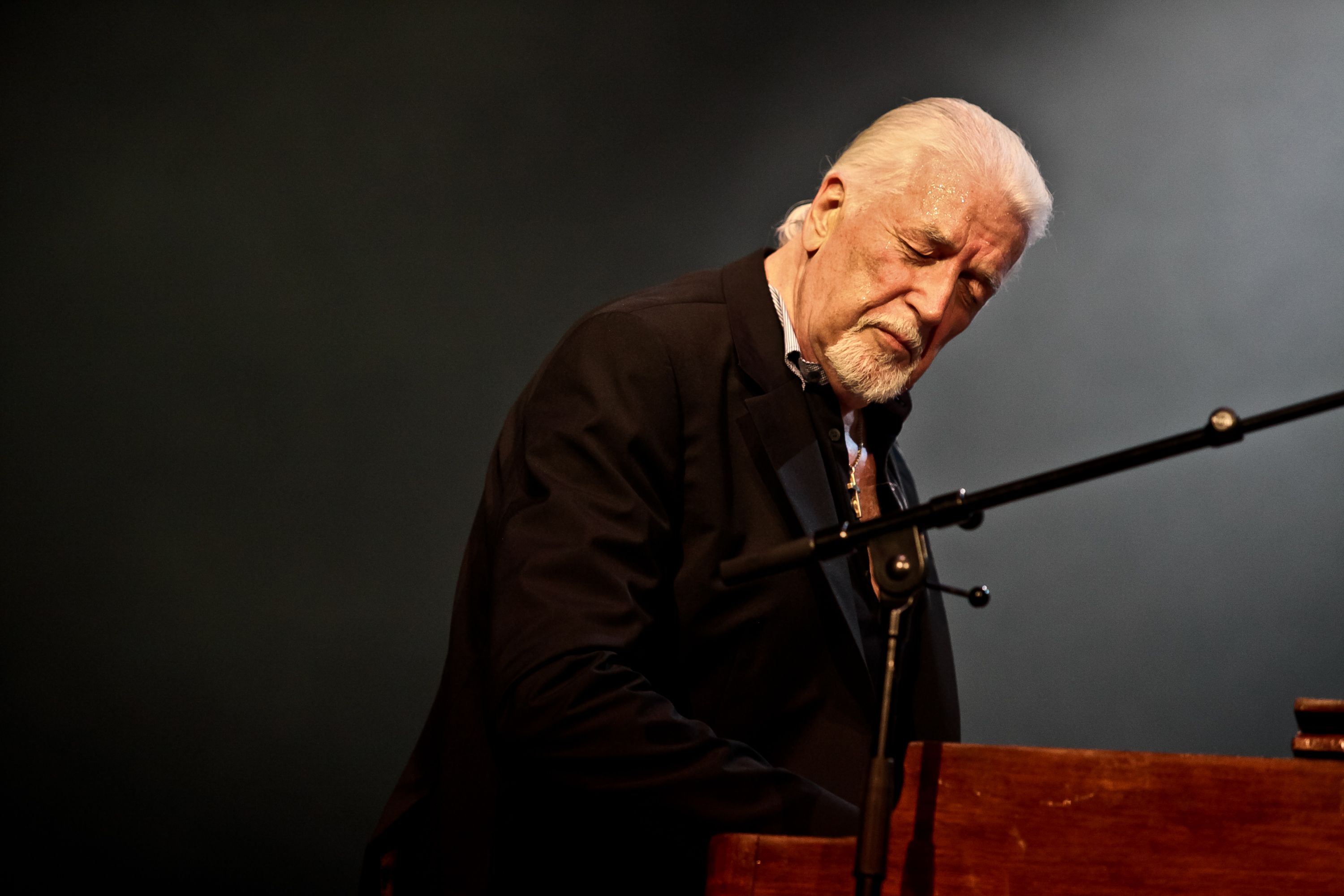
After a lengthy hiatus, he’s back at work. The Concerto For Group And Orchestra was performed and recorded by Lord and a stellar cast of very carefully chosen friends before he was diagnosed last summer. It will be released in September. It features Joe Bonamassa, Maiden singer Bruce Dickinson, Steve Morse, former Pink Floyd and one-time Page and Coverdale bassist Guy Pratt, and the massed ranks of the Liverpool Philharmonic Orchestra conducted by Paul Mann. It sounds – finally – like he always wanted it to sound, as he lay on his bedroom floor in Parson’s Green, Fulham in 1968 when he first concocted it, when everyone said it was madness to try to fuse this loud, hairy-arsed rock band and a full-size orchestra.
“We recorded it over two days in June last year – orchestra, bass, drums, organ – and it produced the most wonderful results. I used different guitar players for different movements. I auditioned a few and, mentioning no names, I didn’t think some players were quite right. Steve Morse does the final movement. A brilliant player and he gets it, where some others didn’t.
“Joe Bonamassa is so good, with so much feel, and I also used an unknown guitar player called Darin Vasilez, from Bulgaria, who I have worked with a few times. He’s an astounding guitar player and he blows me away. I flew him in to London and got him in to Abbey Road. He did a fantastic job on the first movement.”
Dickinson and two singers he has been touring with – Steve Balsamo and Kasia Łaska – take care of all vocals. “It’s not quite finished. I have the final mastered copy and I’m listening to it now. It sounds tremendous. You can hear every note, every little nuance. Finally, we have that perfect balance between the instruments, which we didn’t really capture – we didn’t have the technology to capture – in 1969. I wrote it for a group of musicians that would all sound the same, but of course, it wasn’t like that. We lost the bloom of the orchestra. It gladdens my heart to hear it now. It is a beautiful, exciting, visceral recording.”
That’s it now, he says. No more tinkering. No more coming back to it. “It’s about as close to perfect as I think we will ever get it.”
He will perform it, all being well, at various venues in the months to come. Those details have yet to be arranged. “It will be tricky,” he says, “a logistical nightmare, there’s a lot to arrange there – but we will do it, I’m sure.” The deal, he says, is that everyone leaves their egos at the stage door. He left his behind, he says, somewhere in 1974.
The record company wanted him to fly across Europe to promote the album, sit through countless interviews and press conferences. He’s told them that’s not going to happen. “I’ll do a couple of interviews, but they’ll be phoners,” he says. “I think that’s best.”
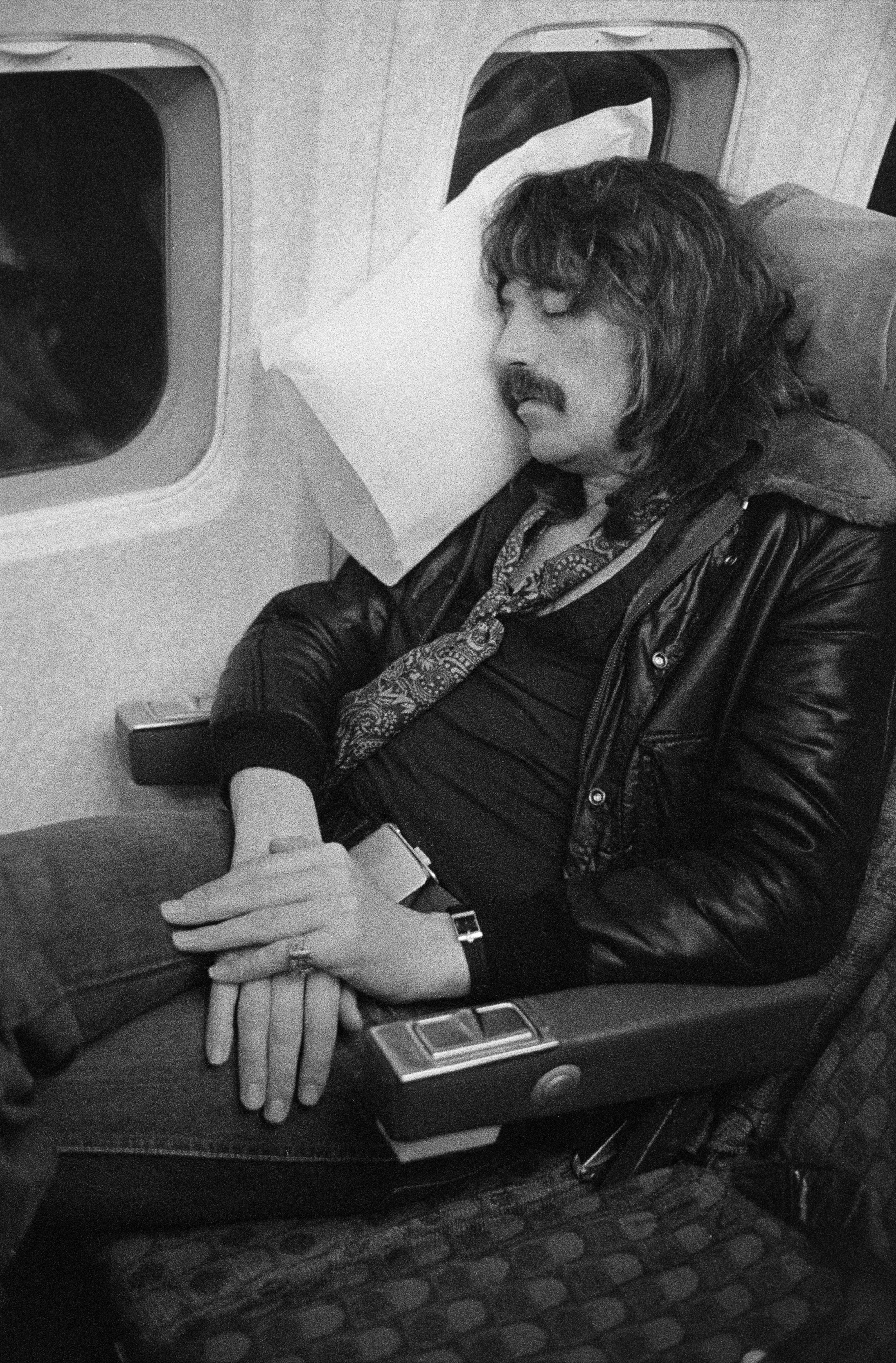
One day he plans to return to the biography he was penning, which, inevitably, has taken something of a backseat in the past 12 months. He has a tale to tell there, he says, if not the time to tell it properly.
And somewhere, buried in the mountain of cards and emails and get-well messages, was one from a long-lost friend now living in Long Island, New York: a certain guitar player called Richard Blackmore.
“He sent me a very nice letter and it was lovely to hear from him.
“My life and Ritchie’s life have departed from each other so radically in the past 20 years. He’s gone his way and I’ve gone mine. But we went through a lot together. We will always have that.
“Would I like to play with him again? I’d love to – there’s a legion of people out there who want him to pull on that white Strat again – but I’m not holding my breath. Besides, I know more than most you should do what you want to do. Ritchie is doing that. Good luck to him.”
And Jon Lord laughs. “All of this and you finish with a question about Ritchie Blackmore. Ha, ha, ha. Bloody typical.”
This article originally appeared in Classic Rock #175.
